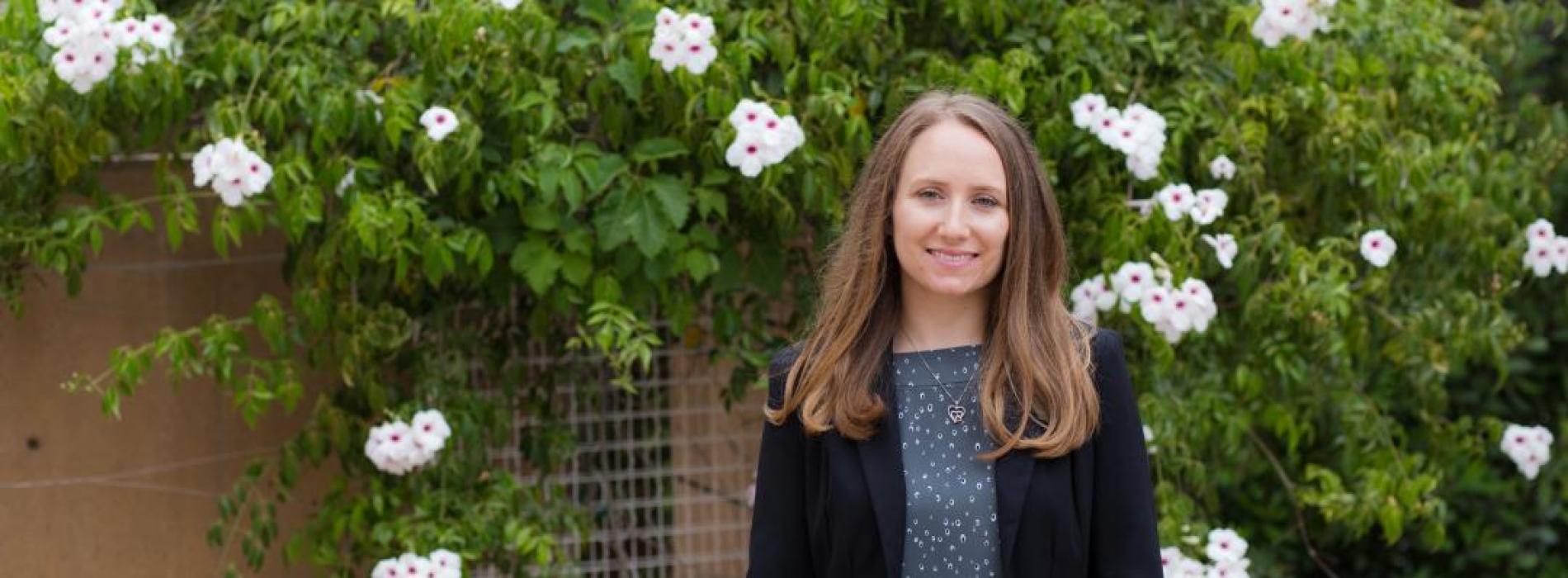
Degree: Ph.D. in Planning, Policy, and Design
What made you decide to pursue a graduate degree?
I decided to pursue a graduate degree not only to gain the experience and skills needed to achieve my professional goal of becoming a professor, but also to continue researching communities that are disproportionately impacted by environmental hazards. While my passion for teaching and research has directed me towards an academic career, I am indebted to my mentors at California Lutheran University and the University of California, Santa Barbara who saw potential in me as an undergraduate student and as a master’s student and who encouraged me to pursue a Ph.D. in public policy.
Why did you choose to come to UCI?
I chose to come to UCI because the university is a top-ranked research institution that values diversity, public service and community engagement. It was important to me that my position as a researcher play a role in advancing social justice. Since the faculty in the Department of Urban Planning and Public Policy are dedicated to promoting positive social change through their research and teaching, I wanted to learn from them how to serve the community I was studying in its efforts to shape environmental policies that impact the health of marginalized groups. Additionally, I knew that Irvine was an ideal location to raise my daughter and that UCI was a supportive environment for graduate student parents.
If you are conducting research, how would you explain your research and its significance to your grandparent?
I study decision-making processes in communities disproportionately burdened by the agricultural industry’s intensive use of pesticides. Pesticide exposure can cause cancer, neurological harm, reproductive problems, genetic mutation, and other negative health impacts. In agricultural regions, regulators, public officials, community organizers, growers, and farmworkers shape the ways that pesticide risk is distributed. These stakeholders can create and reinforce environmental injustices, or they can work together to promote environmental justice – to promote communities were everyone is protected from environmental hazards regardless of income, race, ethnicity, or country of origin. I conduct interviews and observations to explore how local stakeholders’ practices shape agricultural health protections in Ventura County. In Ventura County there is a concentration of agricultural fields in farmworker communities that are majority Latinx, immigrant, and low-income. My objective is to identify decision-making processes and practices that are more inclusive and health protective of farmworkers.
What are your hobbies/passions outside of research?
One of my passions outside of research is student learning. I aspire to use effective teaching strategies that help students learn course content and build important skills, such as critical thinking, writing, effective communication, and collaboration. Creating inclusive classroom environments where diverse students feel valued and supported is one of the most fulfilling aspects of my work. I am also passionate about personal development, well-being, and parenting. Raising my daughter while pursuing a graduate degree is one of my greatest accomplishments. I enjoy seeking out opportunities both inside and outside the department to develop my potential and become more effective at pursuing my personal and professional goals. My hobbies are meditation, exercise, and journaling.
What are you most proud of accomplishing (so far) in your graduate program?
The accomplishment that I am most proud of during my graduate program is collaborating with community leaders and undergraduate students during my dissertation fieldwork. With the support I received from the Haynes and Lindley Doctoral Dissertation Fellowship, I was able to engage research personnel in many aspects of my research. Jocelyn Torres, former undergraduate student in Urban Studies and Social Ecology, and Tiffany Tang, former undergraduate student in Public Health Policy, served as research assistants on the project. They transcribed Spanish and English interviews and provided invaluable insight during team meetings that enriched and shaped the fieldwork. Securing funding for my research also gave me the opportunity to hire research personnel at my field site. Jorge Toledano Ortiz, a farmworker who works in Ventura County’s strawberry fields, worked on the project as a research assistant and interpreter. As a leader for the indigenous Mexican community, Jorge spends his free time attending community meetings, speaking at public hearings, volunteering as a radio host, and providing interpretation services. In his role as a research assistant, Jorge recruited participants, scheduled interviews, provided Mixteco interpretation, and helped me navigate the city of Oxnard as we interviewed Mixteco farmworkers in their homes. I also adopted changes and additions that Jorge suggested for improving my interview guide and for improving my interactions with the community. Engaging community leaders and students in my research has been one of my most memorable experiences and has inspired me to design research that is more community driven in the future.
What do you see yourself doing in five or ten years?
My goal is to attain a tenured faculty position in a public policy, environmental policy, or interdisciplinary department. Working in a department that encourages interdisciplinary thinking and collaborations is a priority for me. Using my role at the university to strengthen community-university collaborations is also a priority for me. In five to ten years, I see myself conducting engaged scholarship in collaboration with researchers across disciplines. I also see myself working with community members in agricultural regions to implement research-based responses to tackle complex environmental justice issues. In my role as an educator, I see myself inspiring students and creating opportunities for them to become change agents as well.
How do you hope to make a difference?
I hope to make a difference by disseminating my findings and recommendations for policy change and intervention in a way that allows me to build stronger relationships with stakeholders in farmworker communities. I also hope to work with community organizers, public officials, and other decision-makers to bring these changes to fruition.